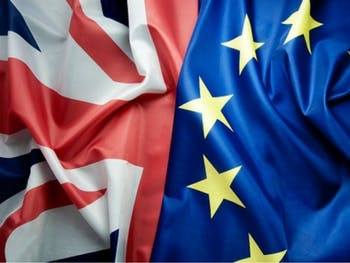UNIVERSITY NEWS LAST UPDATED : 10 DECEMBER 2018

Following the Prime Minister’s delay of parliament's ‘meaningful vote’, experts at Birmingham City University’s Centre for Brexit Studies have assessed the impact of the announcement and asked 'what happens next?'
By Professor Alex de Ruyter and researcher David Hearne from the Centre for Brexit Studies
There was never any real question over whether the parliamentary vote was going to be lost. The relevant question was always: how much would the Government lose by? The prospects of a resounding defeat would most likely cause the vote to be postponed. What happens now?
Theresa May will almost certainly attempt to head to Brussels in order to seek further compromises with the EU. This will be challenging:
- The stated view of the EU is that the Withdrawal Agreement is final – any further changes or amendments are likely to be technical.
- One area that might be relatively easy to change is the political statement on the future partnership. This could be amended to suggest something more palatable to wavering Conservative MPs. However, it is not legally binding so this is unlikely to be sufficient to placate would-be parliamentary rebels.
- The Prime Minister could seek to reopen discussions about the Withdrawal Agreement itself. Even if the EU agreed, the timing is incredibly challenging – at present UK law states that parliament needs to vote on something by 21 January.
o If the Article 50 period is extended then parliament might vote to also move the 21st Jan deadline to a later date. This would need unanimous agreement of other EU members and an extension of more than 2 months is problematic because that is when elections to the European parliament are scheduled.
o What can realistically be changed? In order to avoid a hard border in Ireland, the north and south need to share a common customs territory and certain elements of the Single Market.
o One option is to alter the backstop such that the proposed customs union only encompassed Northern Ireland and not Great Britain. The problem with this is that NI and GB would then be in separate customs territories, which would enrage the DUP still further. This was the initial EU proposal, incidentally.
o Another suggestion is that the Withdrawal Agreement might be amended such that the backstop made explicit reference to some kind of independently proven technological solutions. This might mollify Conservative Brexiters, although one would imagine that the EU would want to maintain some kind of say over what precisely would constitute sufficiently well proven solutions (as it would over any other external border). No such technological have yet been proven to the satisfaction of the EU (they have not been deployed anywhere in the world as yet).
o There is a small possibility of more substantive concessions on the part of the EU but this seems extremely unlikely.
- One other option that has been posited as a “plan B” is the adoption of a “Norway style” agreement as the future relationship.
o This would necessitate freedom of movement of labour (a red line for the UK government).
o It raises problems for the EU (especially Article 102 of the EEA agreement).
o Other EFTA members would need to acquiesce to the UK joining EFTA.
o There would still be a need for a Withdrawal Agreement and a backstop, in case the UK later decided to withdraw from the EEA.
o The EU would be concerned about fishing rights (not covered under the EEA).
o The UK (or at least Northern Ireland) would still need to be in a common customs territory with the EU with all the disadvantages/problems that entails (not to mention the problems of third-party FTAs, whether cumulation would be agreed with trade partners etc.).